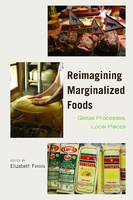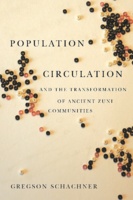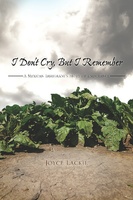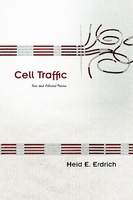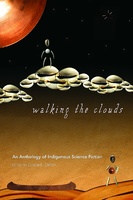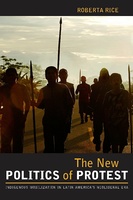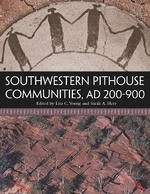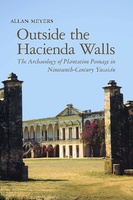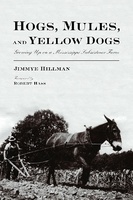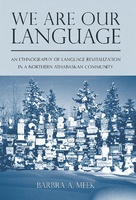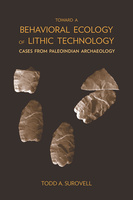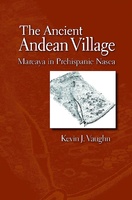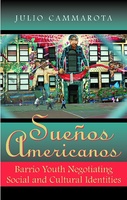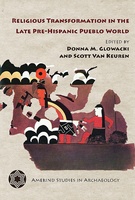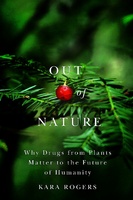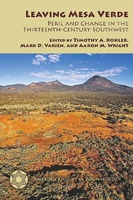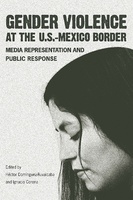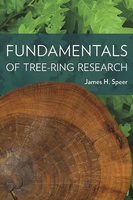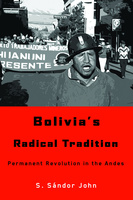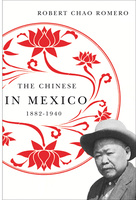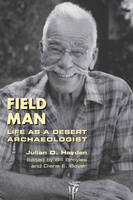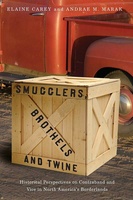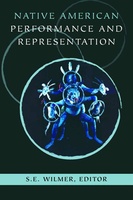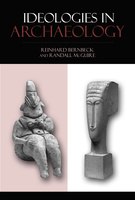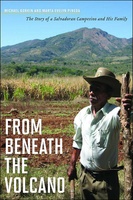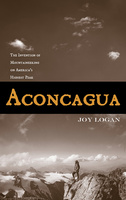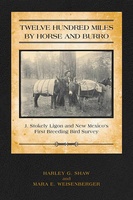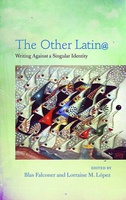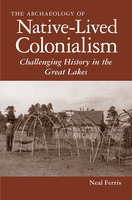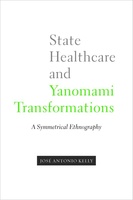The University of Arizona Press is the premier publisher of academic, regional, and literary works in the state of Arizona. They disseminate ideas and knowledge of lasting value that enrich understanding, inspire curiosity, and enlighten readers. They advance the University of Arizona’s mission by connecting scholarship and creative expression to readers worldwide.
Reimagining Marginalized Foods
Global Processes, Local Places
This volume brings together ethnographically based anthropological analyses of shifting meanings and representations associated with the foods, ingredients, and cooking practices that of marginalized and/or indigenous cultures. Contributors are particularly interested in how these foods intersect with politics, nationhood and governance, identity, authenticity, and conservation.
Red Weather
Population Circulation and the Transformation of Ancient Zuni Communities
I Don't Cry, But I Remember
A Mexican Immigrant's Story of Endurance
In I Don’t Cry, But I Remember, Joyce Lackie shares with us an intimate portrait of Viviana Salgeuro’s life. Based on hours of recorded conversations, Lackie skillfully translates the interviews into an engaging, revealing narrative that details the migrant experience from a woman’s point of view and fills a gap in our history by examining the role of women of color in the American Southwest.
Cell Traffic
New and Selected Poems
Cell Traffic presents new poems and uncollected prose poetry along with selected work from award-winning poet Heid Erdrich’s three previous poetry collections. Erdrich’s new work reflects her continuing concerns with the tensions between science and tradition, between spirit and body. She finds surprising common ground while exploring indigenous experience in multifaceted ways: personal, familial, biological, and cultural.
Walking the Clouds
An Anthology of Indigenous Science Fiction
In this first-ever anthology of Indigenous science fiction Grace Dillon collects some of the finest examples of the craft with contributions by Native American, First Nations, Aboriginal Australian, and New Zealand Maori authors.
The New Politics of Protest
Indigenous Mobilization in Latin America's Neoliberal Era
Southwestern Pithouse Communities, AD 200-900
Outside the Hacienda Walls
The Archaeology of Plantation Peonage in Nineteenth-Century Yucatán
Drawing on a dozen years of archaeological and historical investigation, Allan Meyers breaks new ground in the study of Yucatán haciendas. He presents original data and fresh interpretations on settlement organization, social stratification, and spatial relationships.
Hogs, Mules, and Yellow Dogs
Growing Up on a Mississippi Subsistence Farm
To ensure that the world of Jimmye Hillman’s childhood in Greene County, Mississippi during the Great Depression doesn’t slip away, he has gathered together accounts of his family and the other people of Old Washington village. More than just childhood memories and a family saga, though, this book serves as a snapshot of the natural, historical, and linguistic details of the time and place. It is a remarkable record of Southern life.
We Are Our Language
An Ethnography of Language Revitalization in a Northern Athabaskan Community
We Are Our Language provides an investigation of language revitalization based on local language renewal efforts. This book reveals the subtle ways in which different conceptions and practices—historical, material, and interactional—can variably affect the state of an indigenous language, and it offers a critical step toward redefining success and achieving revitalization.
Toward a Behavioral Ecology of Lithic Technology
Cases from Paleoindian Archaeology
The Archaeology of Environmental Change
Socionatural Legacies of Degradation and Resilience
In this book, a diverse collection of case studies reveal how archaeology can contribute to a better understanding of humans' relation to the environment. The Archaeology of Environmental Change shows that the environmental challenges facing humanity today can be better approached through an attempt to understand how past societies dealt with similar circumstances.
Sueños Americanos
Barrio Youth Negotiating Social and Cultural Identities
For nearly a decade, Julio Cammarota interviewed and observed Latino youth—researching how they negotiated myriad social conditions and hostile economic and political pressures in their daily lives. One of the most extensive studies of barrio youth, Sueños Americanos illuminates the complex relationships among low-wage employment, cultural standards, education, class oppression, and gender expectations.
Religious Transformation in the Late Pre-Hispanic Pueblo World
The contributors to this volume employ a wide range of archaeological evidence to examine the origin and development of religious ideologies and the ways they shaped Pueblo societies across the Southwest in the centuries prior to European contact.
Out of Nature
Why Drugs from Plants Matter to the Future of Humanity
Through stories of drug revelation in nature and forays into botany, human behavior, and conservation, Kara Rogers sheds light on the multiple ways in which humans, medicine, and plants are interconnected. With accessible and engaging writing, she explores the relationships between humans and plants, relating the stories of plant hunters of centuries past and examining the impact of human activities on the environment and the world's biodiversity.
Leaving Mesa Verde
Peril and Change in the Thirteenth-Century Southwest
A great mystery in the archaeology of the Southwest is the depopulation of the northern San Juan in the late thirteenth-century AD. Leaving Mesa Verde confronts this mystery with new paleoenvironmental data and much archaeological research. What arises is a story of conflict and disruption as a result of climate change, environmental degradation, social rigidity, and conflict.
Gender Violence at the U.S.–Mexico Border
Media Representation and Public Response
Exploring Mars
Chronicles from a Decade of Discovery
Bolivia's Radical Tradition
Permanent Revolution in the Andes
Arizona
A History, Revised Edition
Now, just in time for Arizona’s centennial, Sheridan has revised and expanded this already top-tier state history to incorporate events and changes that have taken place in recent years. Addressing contemporary issues like land use, water rights, dramatic population increases, suburban sprawl, and the US–Mexico border, the new material makes the book more essential than ever. It successfully places the forty-eighth state’s history within the context of national and global events. No other book on Arizona history is as integrative or comprehensive.
Along These Highways
Rene Perez has the ability to stop time. In fact, time stops as soon as you start reading one of his short stories. You find yourself transported into the minds and lives of people you thought you didn’t know. Suddenly they are your best friends. They live in Texas. Most of them are Hispanic. But their problems are universal.
Latino Los Angeles
Transformations, Communities, and Activism
Field Man
Life as a Desert Archaeologist
Field Man is the memoir of renowned southwestern archaeologist Julian Dodge Hayden—a blue-collar scholar who challenged conventional thinking on the antiquity of man in the New World, brought a formidable pragmatism to the identification of stone tools, and who is remembered as the leading authority on the prehistory of the Sierra Pinacate.
Death and Dying in Colonial Spanish America
Women and Knowledge in Mesoamerica
From East L.A. to Anahuac
Smugglers, Brothels, and Twine
Historical Perspectives on Contraband and Vice in North America’s Borderlands
Native American Performance and Representation
Immigration Law and the U.S.–Mexico Border
¿Sí se puede?
Ideologies in Archaeology
Contributors to this volume focus on elements of life in past societies that “went without saying” and uncover complex manipulations of power that have often gone unrecognized. They show that Occam’s razor—the tendency to favor simpler explanations—is sometimes just an excuse to avoid dealing with the historical world in its full complexity.
From Beneath the Volcano
The Story of a Salvadoran Campesino and His Family
Twelve Hundred Miles by Horse and Burro
J. Stokley Ligon and New Mexico’s First Breeding Bird Survey
The Other Latin@
Writing Against a Singular Identity
The Archaeology of Native-Lived Colonialism
Challenging History in the Great Lakes
State Healthcare and Yanomami Transformations
A Symmetrical Ethnography
With theoretical foundations in medical and Amazonian anthropology, Kelly shows how Amerindian cosmology shapes concepts of the state at the community level. His symmetrical anthropology treats white and Amerindian perceptions of each other within a single theoretical framework, thus expanding our understanding of the groups and their mutual influences. This book will be valuable to scholars and students of Amazonian peoples, medical anthropology, development, and Latin American studies.


